The Department of Environment and Natural Resources (DENR) has called on the government, business sector and other stakeholders to work together to find the best solutions to plastic pollution, which has become one of the most serious threats to the health of oceans and a major hazard to marine biodiversity.
DENR Assistant Secretary and concurrent Biodiversity Management Bureau (BMB) Director Ricardo Calderon said that a stronger public-private partnership would help translate political and corporate commitment to address plastic pollution into tangible strategies and investible action plans.
“We urge everyone to join the pledge for our environment; a pledge that will institutionalize our collective and collaborative action towards addressing the issue of marine debris,” Calderon said at the culmination of the Month of the Ocean celebration held recently at The Peninsula Manila, with the title “Free the Seas from Marine Debris.”
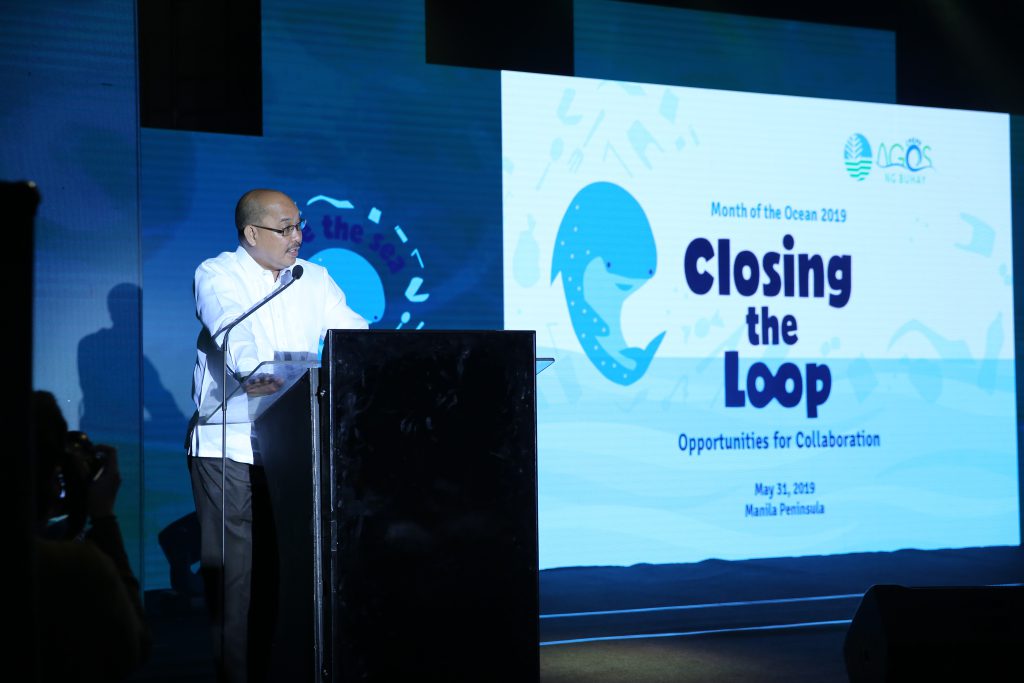
Calderon’s statement was in line with Environment Secretary Roy A. Cimatu’s prior call to the Filipinos to “cut down on the use of plastics that end up in the ocean and pose a threat to marine life.”
“The task of reversing this issue is as big and wide as the ocean, but small actions can make a huge difference,” Cimatu said.
A study conducted by the Ocean Conservancy, a US-based environmental advocacy group, revealed that eight million tons of plastic enter the ocean each year on top of the 150 million tons of plastic that already circulate in the ocean, contributing to loss of species and the contamination of the food chain.
Relatedly, Calderon said that marine plastic pollution is one of the latest and most alarming issues the world is facing with the Philippines as one of the major contributors to global problem, primarily due to its so-called “sachet economy” where companies are selling products in single-used plastic sachets.
While it was easy to resort to banning plastic sachets, Calderon noted that there are “economic implications” to such move that the stakeholders, particularly the government and businesses, should prepare for.
“As one of the fastest developing countries in the world, with more than 6.6 percent in terms of world trade, one of the drivers of economic growth is basically the sachet economy, the 3-in-1 packages, including the plastic straw, which is basically part of development,” he pointed out.
According to Calderon, committing to act on the issue of marine debris will also help prevent other sea animals from ingesting plastic. Recently, a baby rough-toothed dolphin (Steno bredanensis) rescued in Palawan died after it had difficulty digesting when fed by rescuers in an attempt to save it. A tightly-packed garbage bag was later found stuck in its stomach which prevented the food to pass through.
Billions of plastic sachets are sold each year to get small quantities of personal care and food products, such as shampoo and soy sauce, to people mostly in emerging markets. These sachets are not recycled and many end up polluting the ocean.
This crisis urgently demands innovators, industry and governments to develop systemic solutions that prevent plastic from becoming waste in the first place.
Calderon expressed hope stakeholders would eventually “come up with a direction, a way forward on how we can address this problem without sacrificing development.”

The event entitled “Closing the Loop: Opportunities for Collaboration” aims to share knowledge and identify areas for collaboration among relevant stakeholders addressing the problem in marine debris.
After the opening ceremony and welcoming remarks delivered by ASec Calderon, the program commenced an inspirational message from the youth followed by three sessions which consisted of talks and panel discussions. The first session was for the Private sector, the second session was dedicated to the Government sector, while the third and final session was for the Non-Government and Development Sector.

In their speech, youth representatives and sisters, Natasha and Isabella Tanjutco, stressed that there is no age limit to making an impact and making a difference in society adding that the involvement of the youth has become more urgent because of the on-going deterioration and destruction of the country’s natural resources due to man-made activities. hey encouraged everyone to stand together and not apart and to turn their fears into hope and positive action.
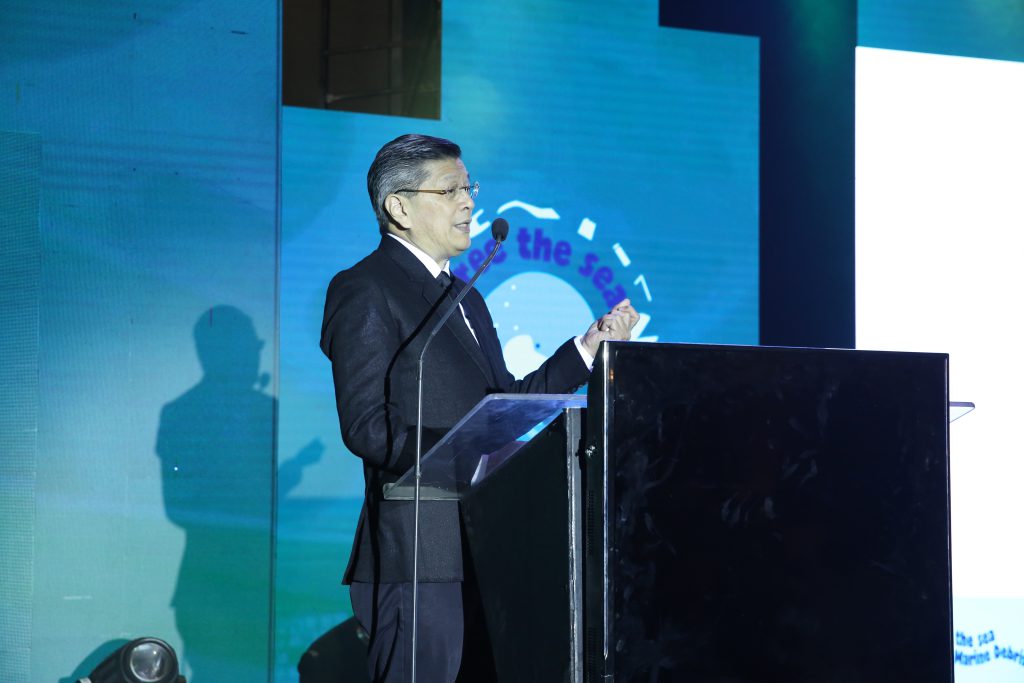
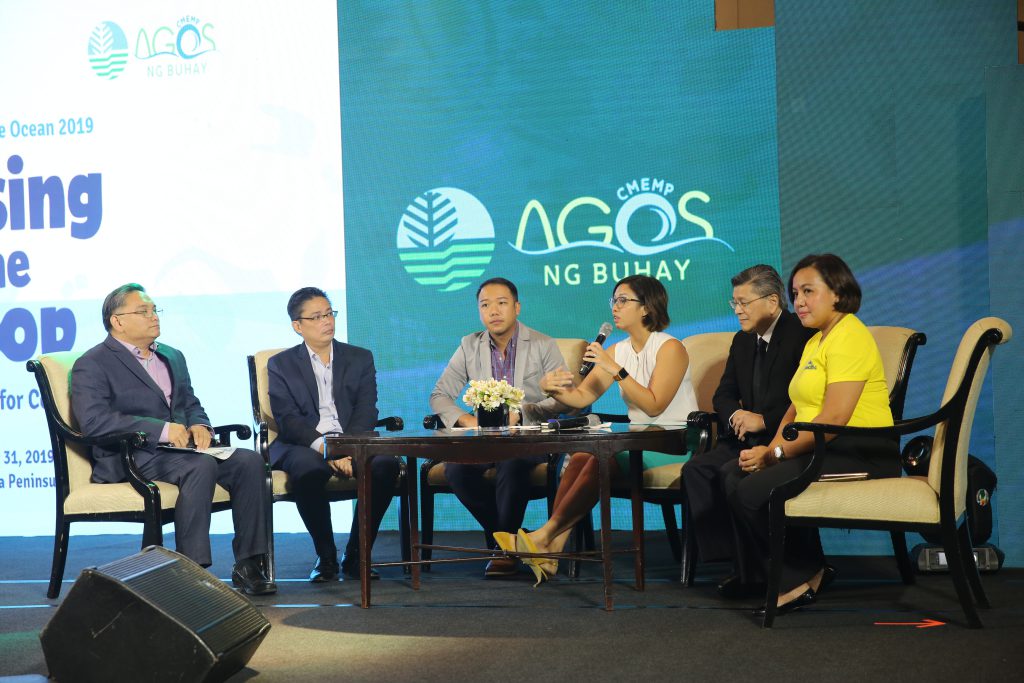
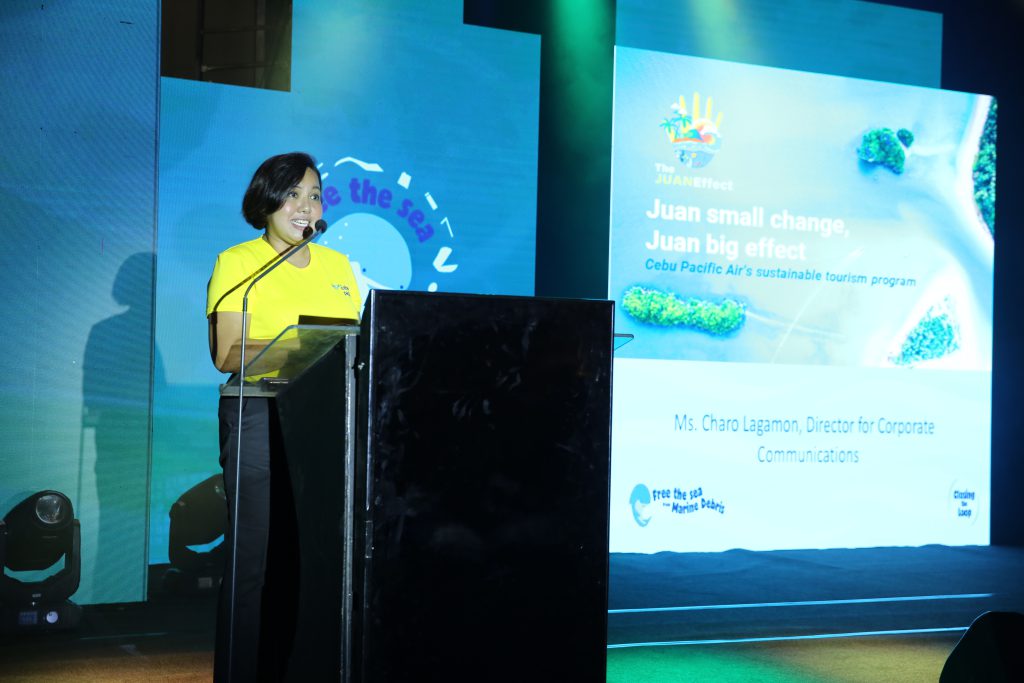
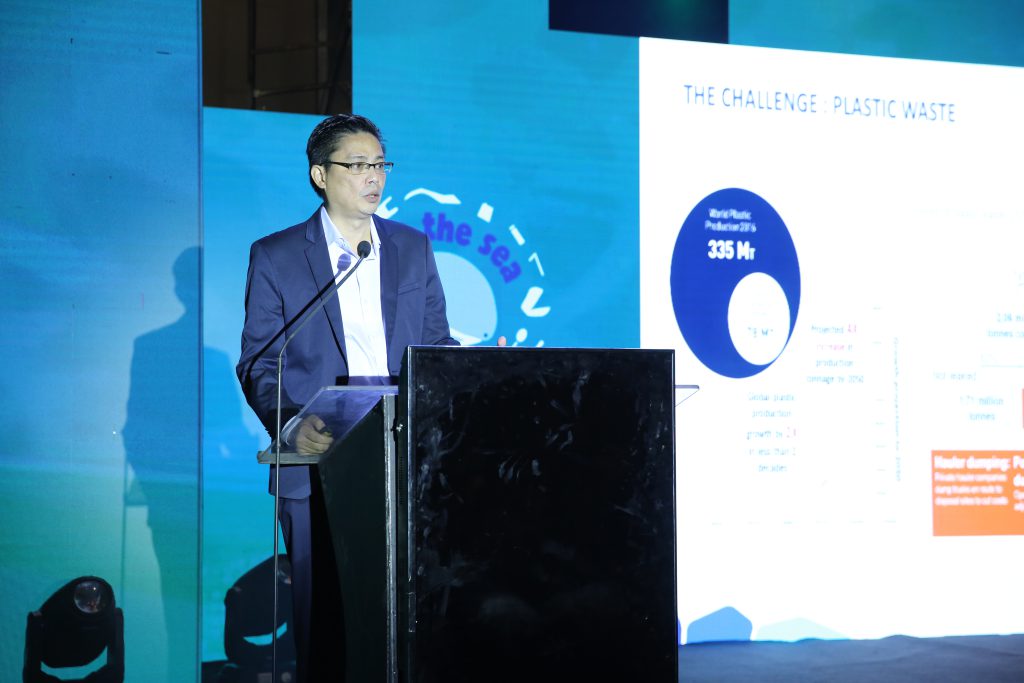
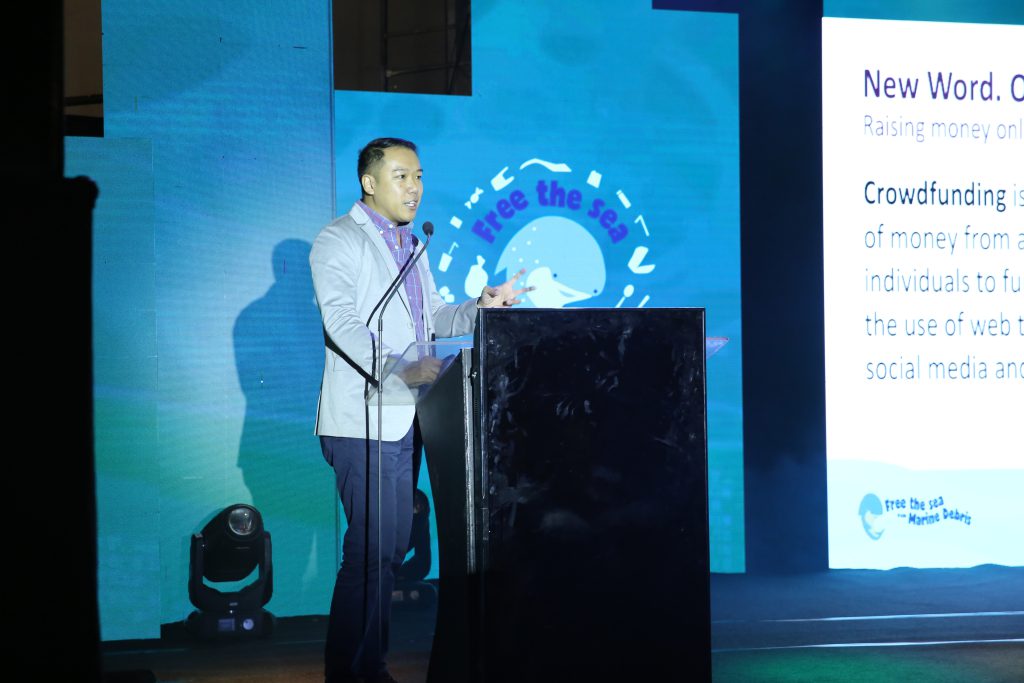
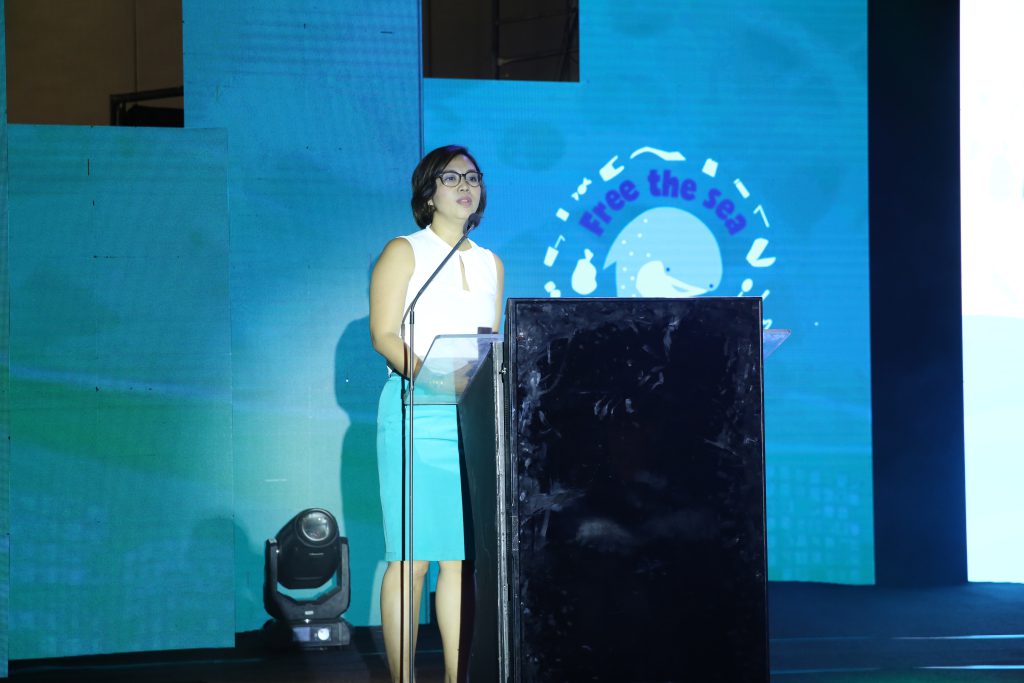
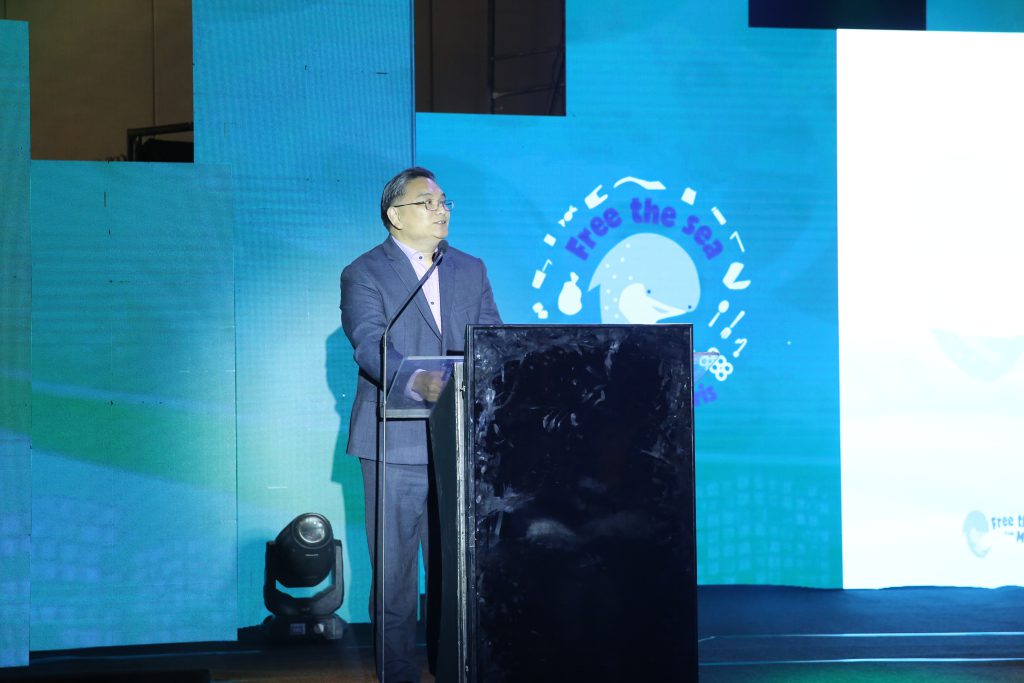
In their speech, youth representatives and sisters, Natasha and Isabella Tanjutco, stressed that there is no age limit to making an impact and making a difference in society adding that the involvement of the youth has become more urgent because of the on-going deterioration and destruction of the country’s natural resources due to man-made activities. hey encouraged everyone to stand together and not apart and to turn their fears into hope and positive action.
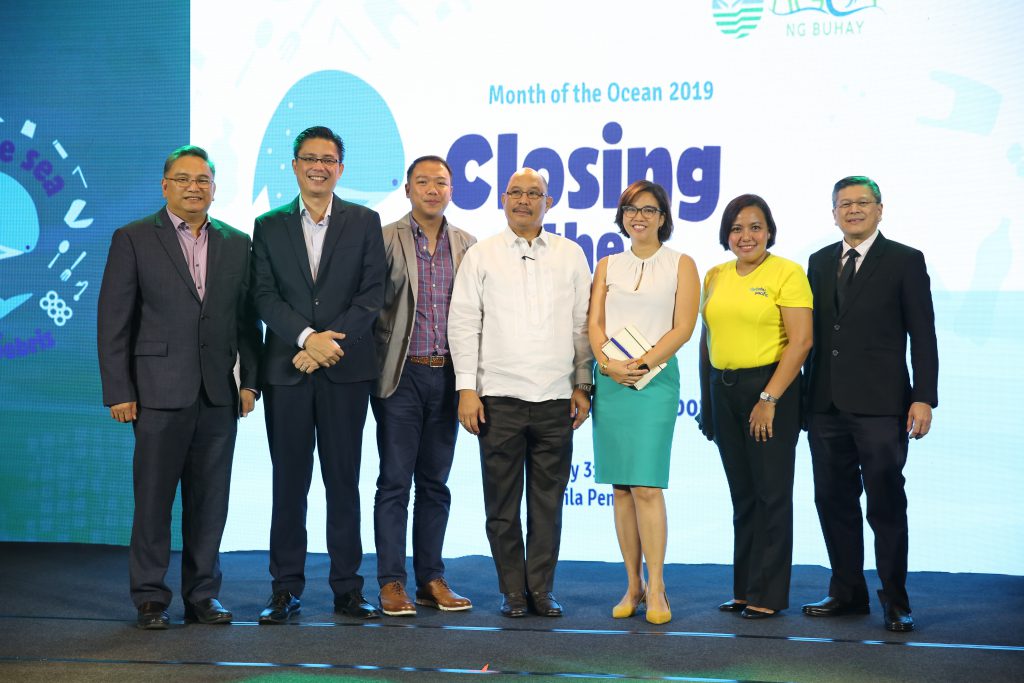
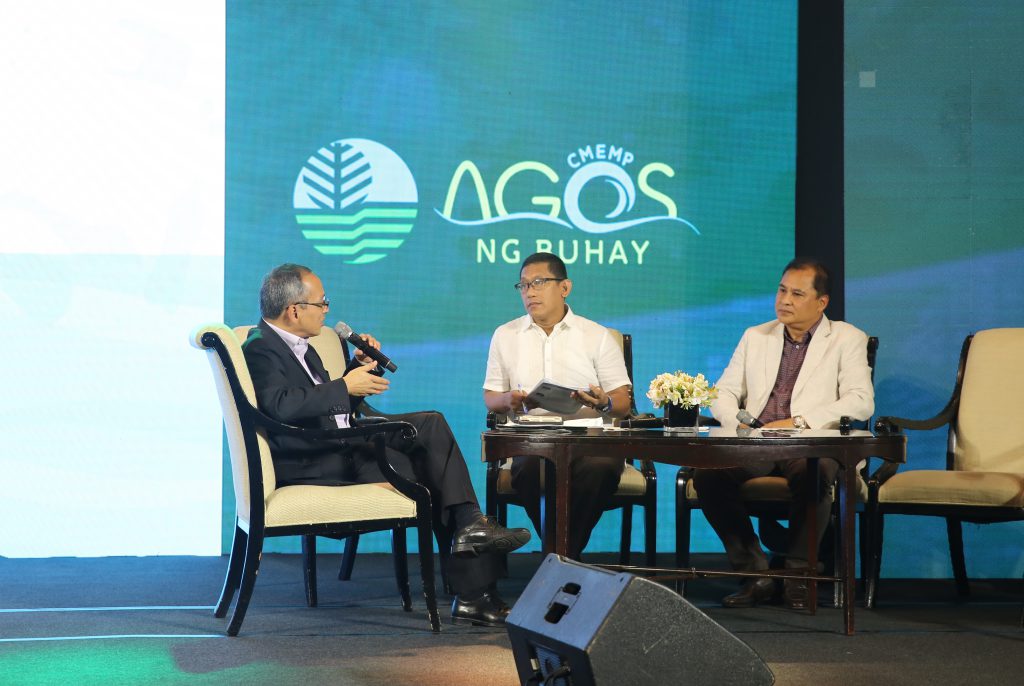
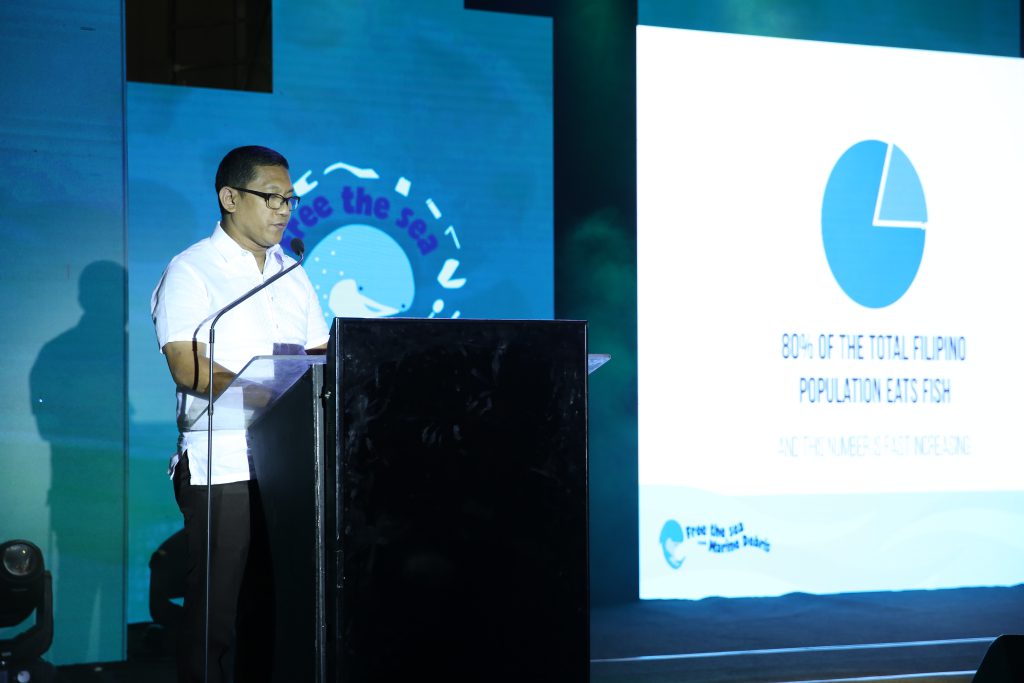
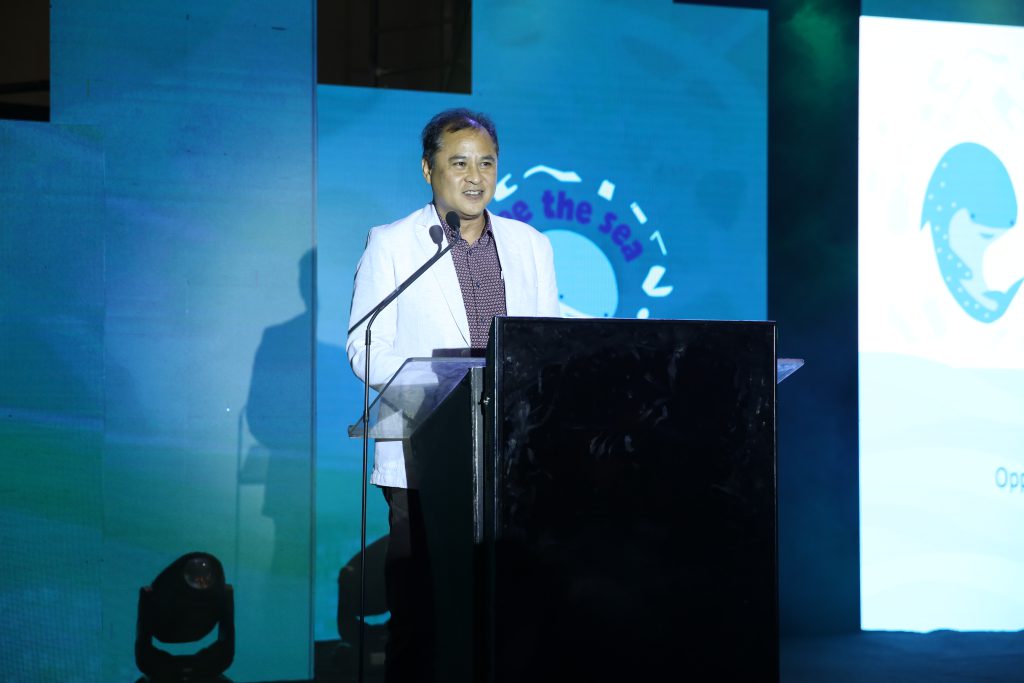
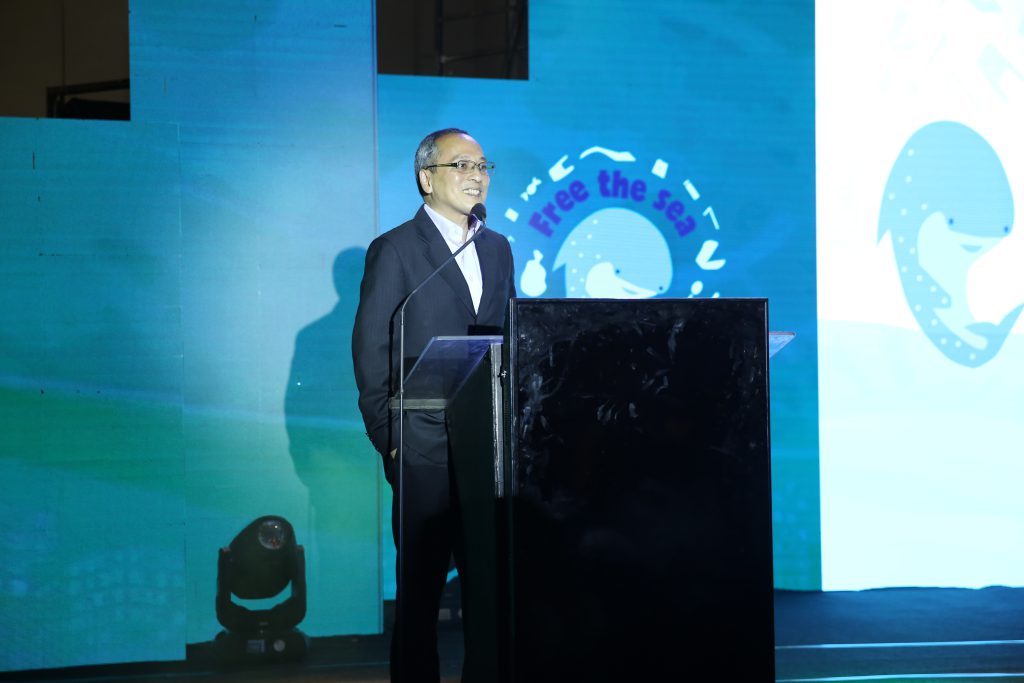
During the panel discussion, Mr. Briguera (BFAR) admits that behavioral change is a challenge; hence the need to start sowing the seeds among the younger generation. He also said the government agencies can only do so much and that addressing the problem needs the participation of all sectors.
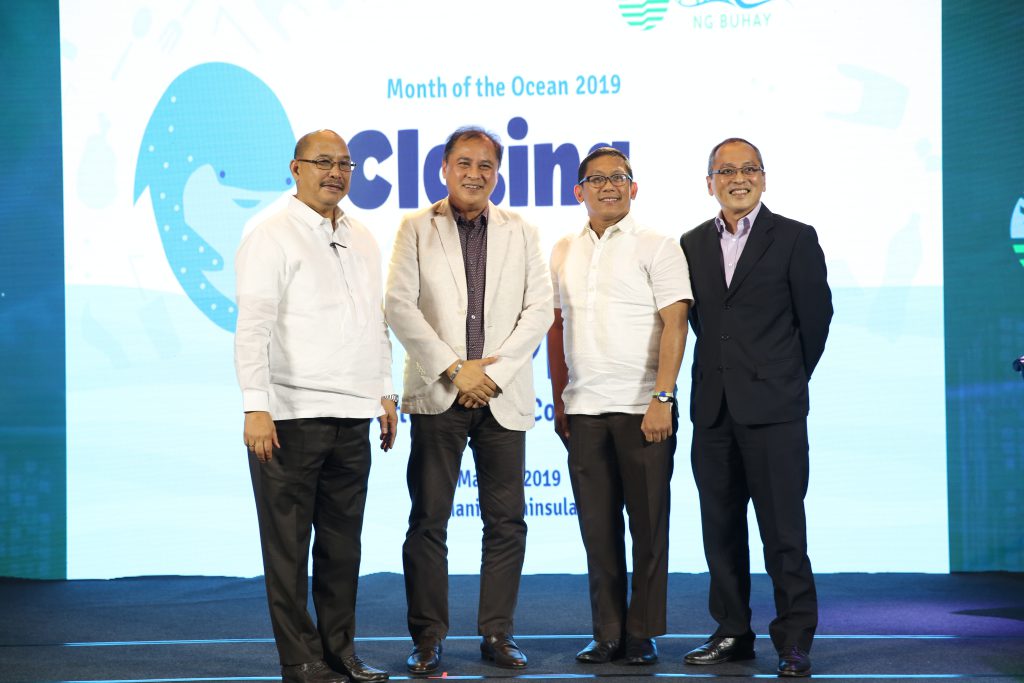
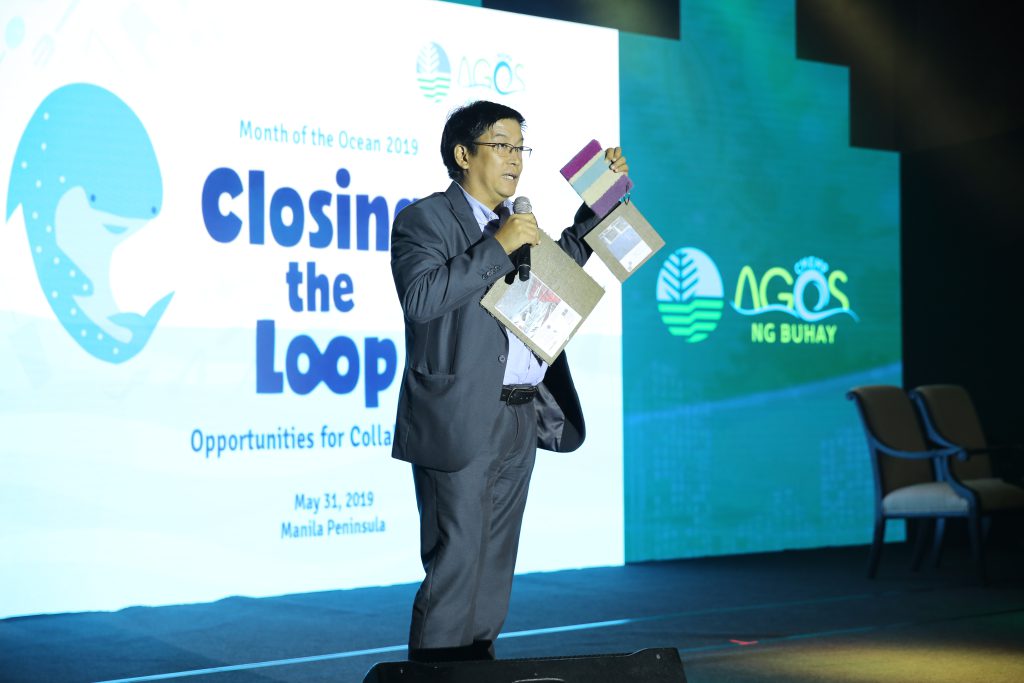
Before the NGO and Development Sector session, Mr. Godofredo Villapando, Country Director of the Zoological Society of the Philippines (ZSL) showed a short video focusing on ZSL’s program to rid the coastline and marine waters of discarded fishing nets which contribute to coastal pollution and trap/kill marine life such as turtles and marine mammals. Thousands of miles of discarded nets littered on the shoreline are collected and exported by ZSL to Europe where they are processed into carpet tiles.
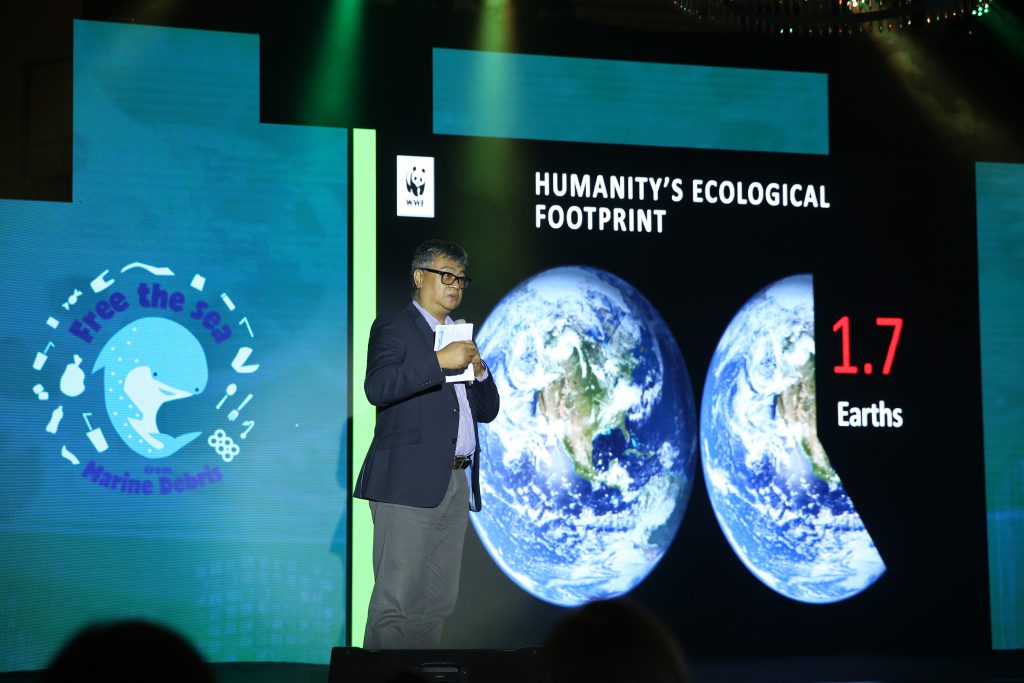
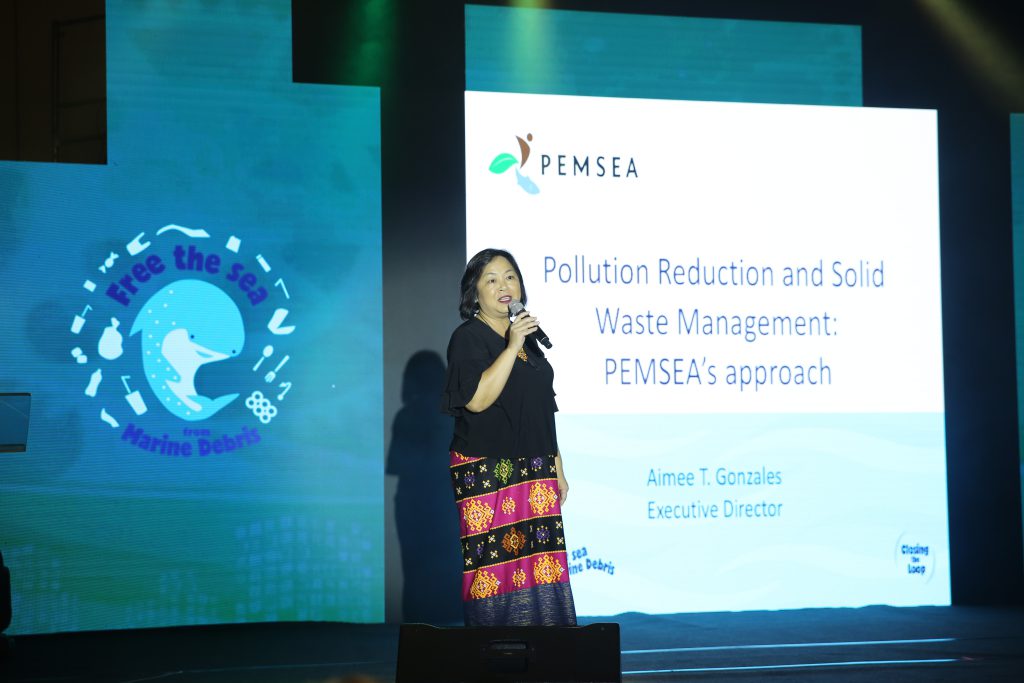
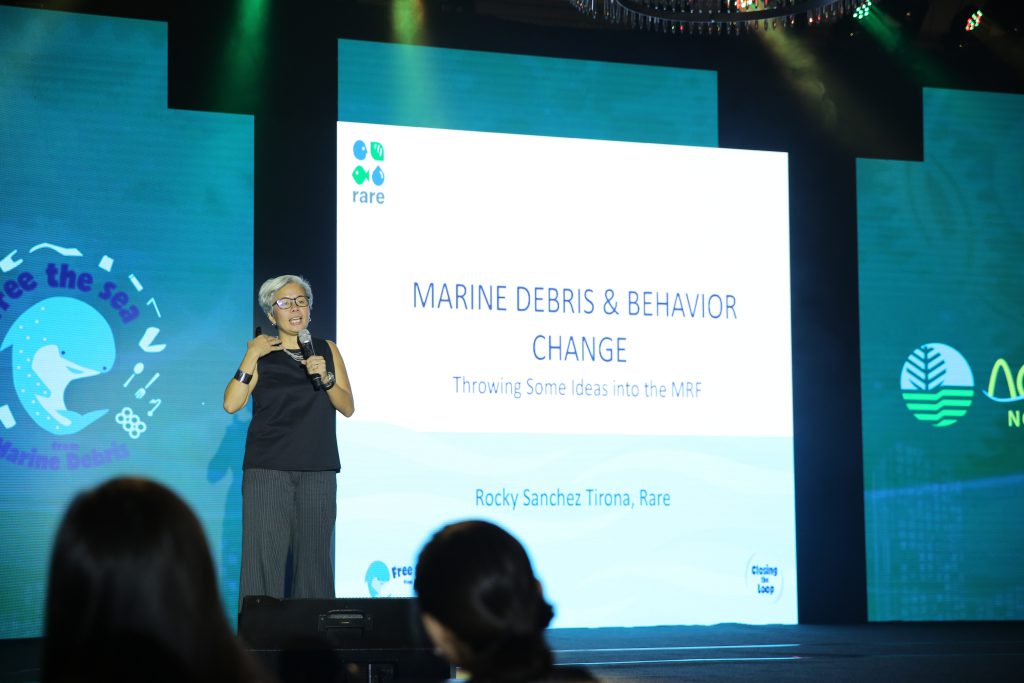
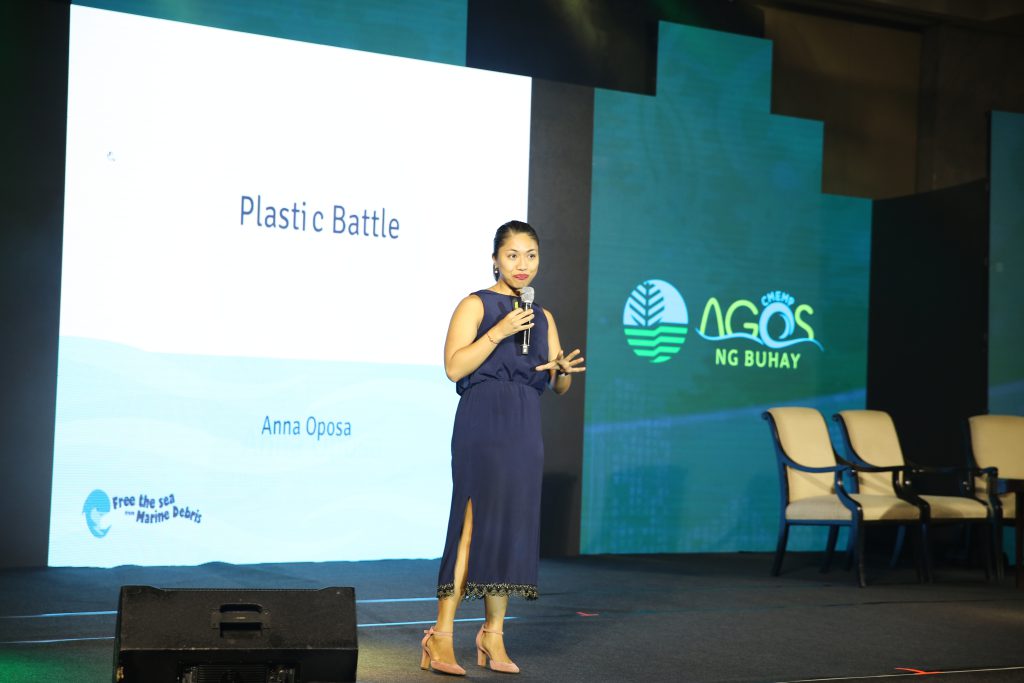
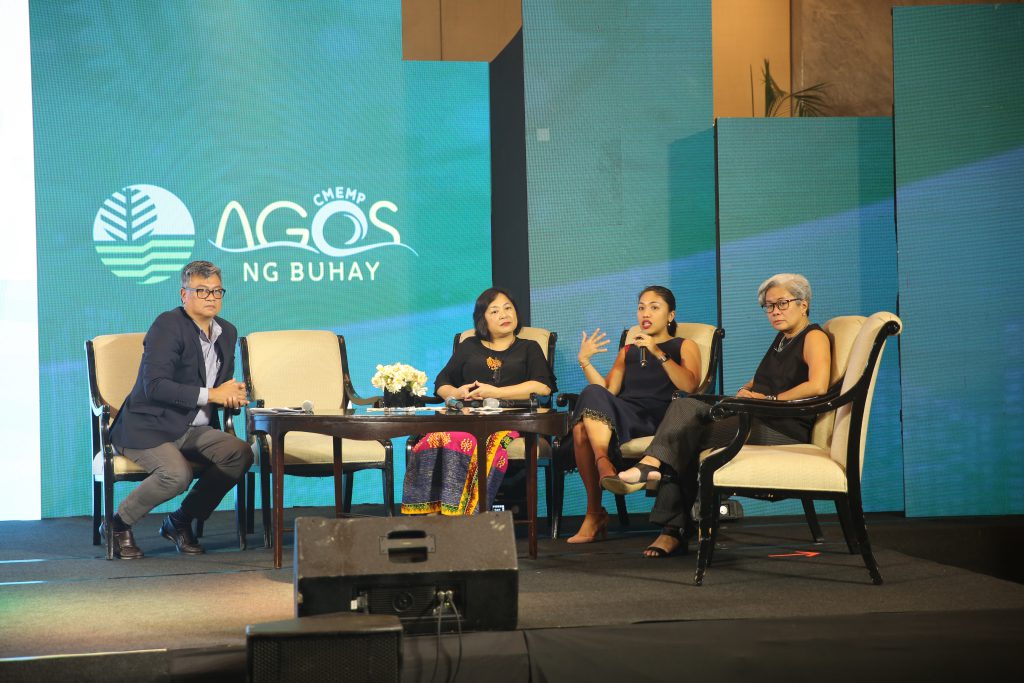
In the panel discussion, Ms. Tirona explained that this should first start at the community level, providing the people with enabling policies and financing, and giving them the required tools that they can operate on. She commended BMB for organizing the event and bringing the different sectors together and expressed hope that future events will include more youth representatives.
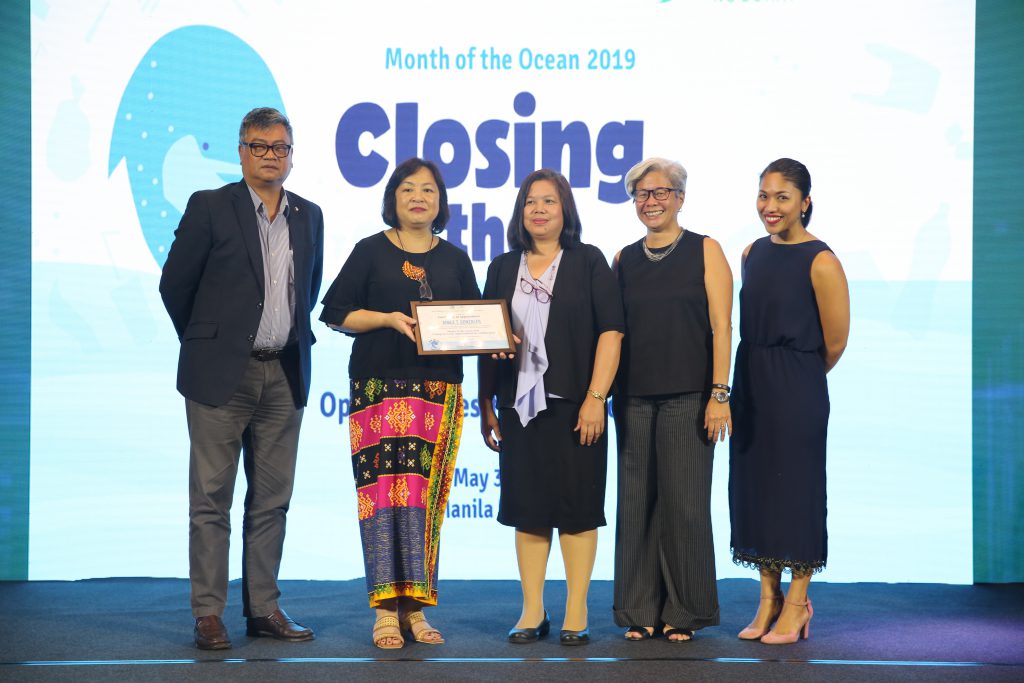
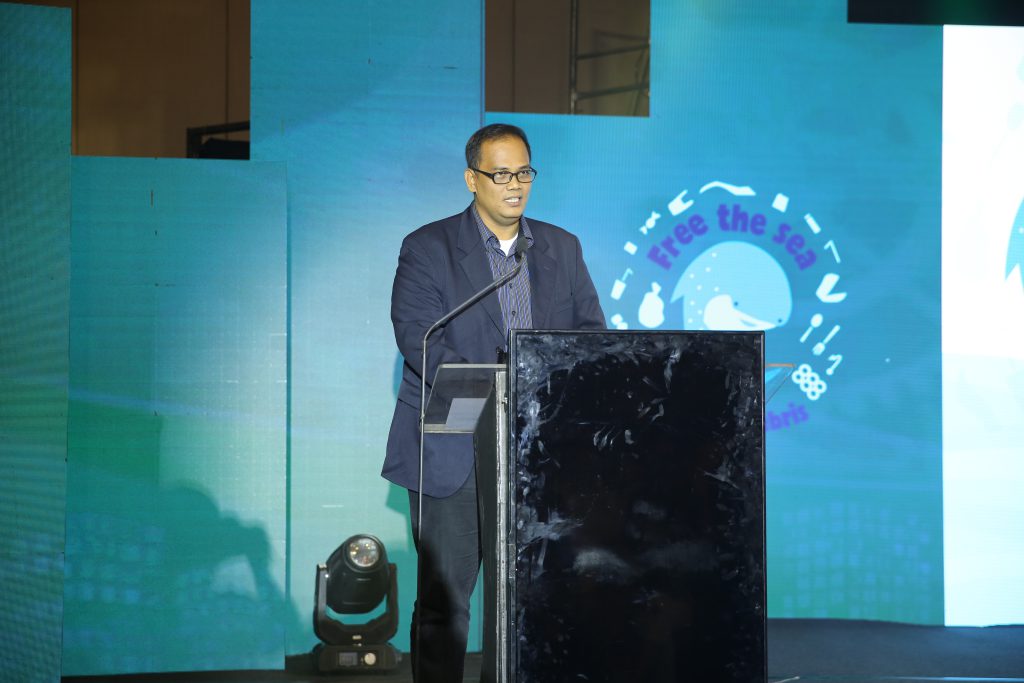
A synthesis of the event’s highlights and key takeaways from each session was given by Mr. Voltaire Acosta of GIZ. Mr. Acosta pointed out that there is a need for everyone to acknowledge the problem (which have regional and global implications), realize a common vision and identify areas for convergence, and work together to address the marine litter issue.
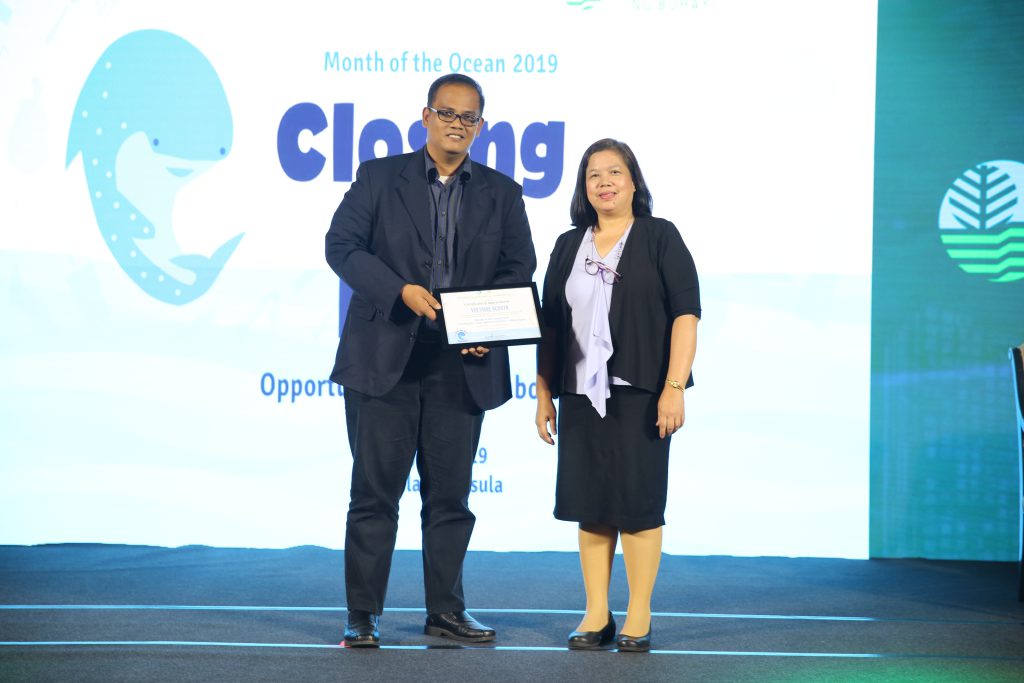
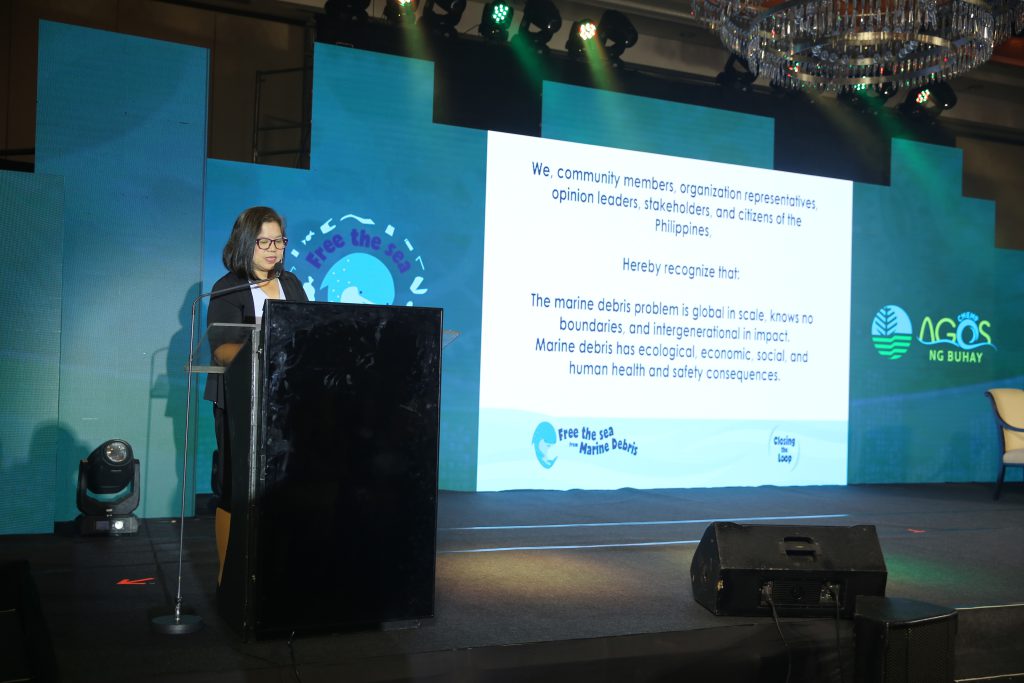
Assistant Director of DENR-BMB, Ms. Armida Andres, in her closing message, thanked the guests, speakers, moderators, representatives from the different sectors. AD Andres asked all the participants to join her recite a pledge of commitment. The pledge acknowledges that the marine debris problem is primarily a result of human behavior and decisions; hence, collective effort and sustainable actions must be made by all Filipinos to gradually free the sea from marine litter.
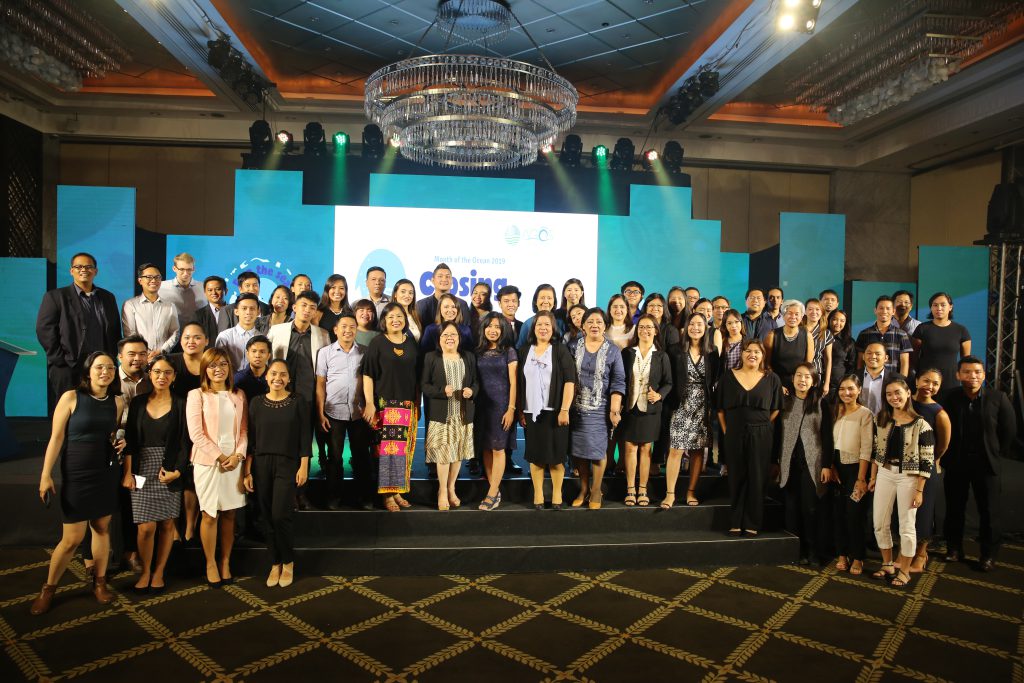
Let us all work together to free the sea from marine debris!



